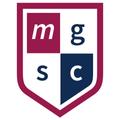VCE Vocational Major (VCE VM)

What is the VCE VM?
The VCE VM is a two year vocational and applied learning program, undertaken by Year 11 and 12 students. It is designed to equip participants with the essential skills for work, further education (TAFE and/or university) and personal growth.
The VCE VM will prepare students to move successfully into apprenticeships, traineeships, further education and training, university through alternative entry programs or directly into the workforce. The studies are assessed at a school level. Students completing their VCE VM are not required to complete school and external examinations, therefore will not receive an ATAR score. Although, students are required to complete the GAT.
Students completing VCE VM students can have assessments modified in any additional VCE subjects completed at MGSC.
How is the VCE VM structured at MGSC?
VCE VM Requirements (16 units required) | MGSC Options |
Literacy (3 units minimum) | VCE VM Literacy Units 1 - 4 VCE English Units 1 - 4 VCE Literature Units 1 - 4 VCE EAL Units 1 - 4 |
Numeracy | VCE Foundation Maths Units 1- 4 |
Work Related Skills (Delivered in 2026) | VCE VM Work Related Skills (Units 3 & 4) |
Personal Development (Delivered in 2027) | VCE VM Personal Development Skills (Units 3 & 4) |
VET | 180 hours of your chosen VET subject (Availability subject to different TAFE providers) Refer to the VET portion of the handbook |
Any other VCE Subject (2 units minimum) | Refer to the list of VCE subjects offered at MGSC. |
I’m interested in enrolling in the VCE VM. What do I need to do?
Students need to indicate their interest in this program by completing a Google form.
This will then be utilised to ensure the VCE VM Coordinator is available for your course counselling appointment to discuss the program and address any questions or queries you may have.
VCE VM Subjects at MGSC
VCE VM Literacy (Units 1 - 4)
Units 1 and 2
Throughout Units 1 and 2 Literacy, students will build on their reading, viewing, and digital literacy skills to become more confident and thoughtful communicators. They will explore a wide variety of texts—such as films, online videos, poetry, biographies, and social media—from both local and global perspectives, including First Nations and multicultural voices.
Students will learn how different types of texts are created for specific audiences and purposes, helping them better understand the messages they see and hear every day. They will also practice finding key information in texts and evaluating digital sources for accuracy and reliability—important skills for school, work, and life online.
As part of their learning, students will discuss real-world issues, hear different points of view, and learn how to form and express their own opinions clearly and respectfully. They will practice persuasive writing and speaking, learning to support their ideas with evidence and to reflect on the values and beliefs behind different perspectives. Students will also develop safe and respectful digital behaviours, preparing them to engage thoughtfully in online environments.
Units 3 and 4
Throughout Units 3 and 4, students will continue to gain confidence in reading and understanding real-world texts they are likely to encounter in everyday life, work, and the community. These include practical materials such as safety guidelines, tax forms, contracts, health advice, and workplace documents.
Students will learn how to recognise the structure and purpose of these informational, organisational, and procedural texts. They will explore how such texts are used in vocational settings and why it’s important to understand them—especially when it comes to knowing their rights and responsibilities in the workplace or community.
Through class discussions and hands-on activities, students will practise reading, analysing, and using these types of texts so they can navigate adult life more confidently and independently.
VCE VM Work Related Skills (Units 3 & 4)
VCE Vocational Major Work Related Skills (WRS) examines a range of skills, knowledge and capabilities relevant to achieving individual career and educational goals. Students will develop a broad understanding of workplace environments and the future of work and education, in order to engage in theoretical and practical planning and decision-making for a successful transition to their desired pathway.
The study considers four key areas: the future of work; workplace skills and capabilities; industrial relations and the workplace environment and practice; and the development of a personal portfolio.
Students will have the opportunity to apply the knowledge and skills gained from this study in the classroom environment and through Structured Workplace Learning (SWL) completed whilst in Year 11.
VCE VM Personal Development Skills (Units 3 & 4)
VCE Vocational Major Personal Development Skills (PDS) takes an active approach to personal development, self-realisation and citizenship by exploring interrelationships between individuals and communities. PDS focuses on health, wellbeing, community engagement and social sciences, and provides a framework through which students seek to understand and optimise their potential as individuals and as members of their community.
This study provides opportunities for students to explore influences on identity, set and achieve personal goals, interact positively with diverse communities, and identify and respond to challenges. Students will develop skills in self-knowledge and care, accessing reliable information, teamwork, and identifying their goals and future pathways.
PDS explores concepts of effective leadership, self-management, project planning and teamwork to support students to engage in their work, community and personal environments.
Through self-reflection, independent research, critical and creative thinking and collaborative action, students will extend their capacity to understand and connect with the world they live in, and build their potential to be resilient, capable citizens.
